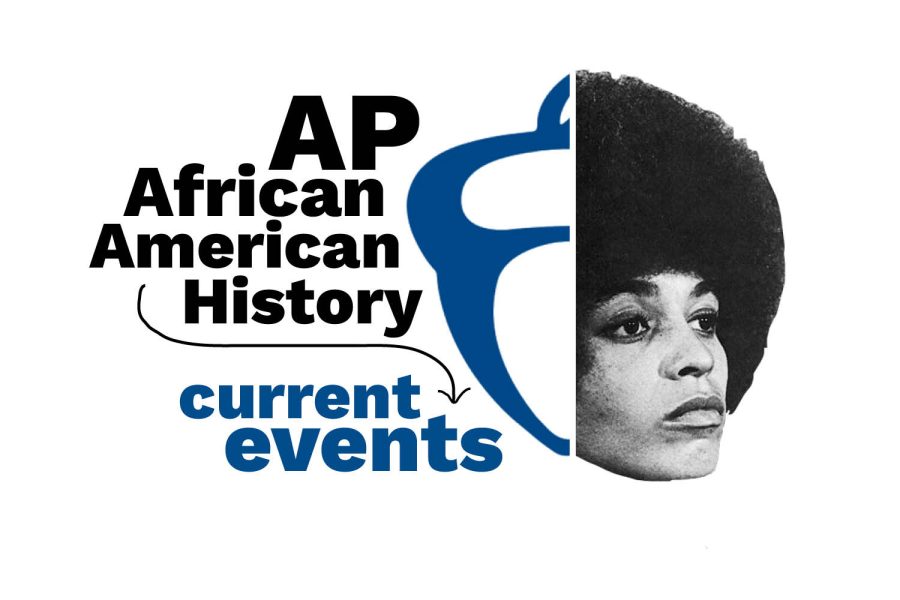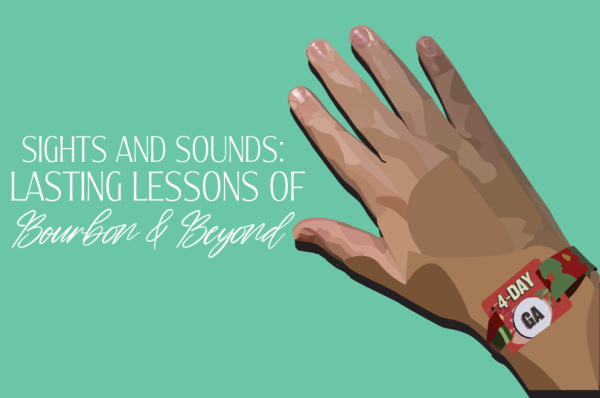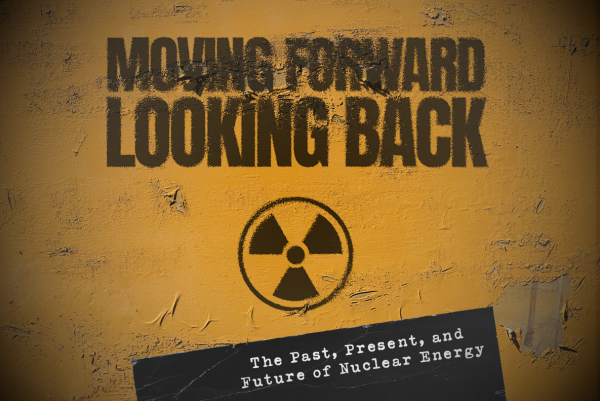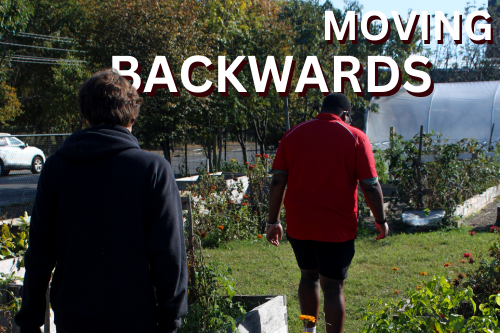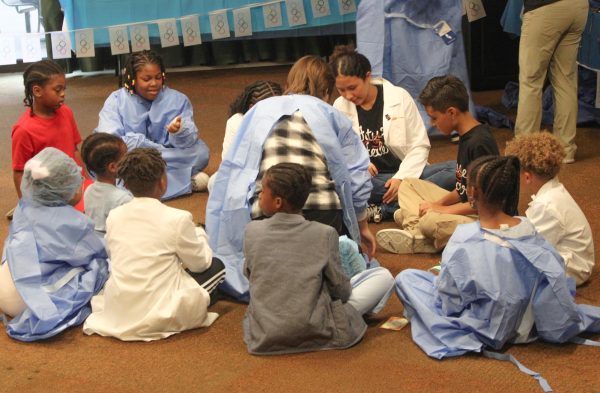Why AP African American History’s disclusion of current events is problematic – Opinion
An argument for how inclusive history courses need to extend that inclusivity to the present.
Photos by Mia Leon
The AP African American History course has removed important topics including the discussion of Black authors such as Angela Davis.
As a senior in high school, after thirteen years of formal education, I am enrolled in a non-majority white class for the first time. In “Developing Black Historical Consciousness,” or DBHC, I am one of two white students, the others being predominantly Black. Almost every class, we have opportunities to discuss current events, our reactions to new issues, and potential personal connections.
Throughout my history classes, the trend is usually the same: white man did this, white man did that. I’ve heard more about Thomas Jefferson’s personal life than I ever did about Martin Luther King Jr.’s political and social accomplishments. I’ve been taught about Paul Revere and Abraham Lincoln my whole life, but never before did I even hear the names of Paul Robeson or Hiram Revels. My point? American history has been far too white for far too long.
But this class is different. In DBHC, we learn from the Ancient African empires to modern civil rights movements, and all throughout, we focus on primary sources from the Black leaders and figures in American history. It is, by far, the most inclusive course I’ve ever taken.
Recently, our teacher told us of a new College Board curriculum: AP African American History. He would teach it next year, as Manual is one of hundreds of pilot schools for the course. And in class that day, he asked us our opinions. What did we think of this new course? Was it a step forward? Or had that step been taken too late?
That made me think — I had heard rumblings of the country’s reaction to this course in the days before the teacher’s announcement, but I hadn’t truly looked into the course. And when I did, I realized that this was bigger than just a new class on our schedule.
Last fall, the College Board launched the planning process of the AP African American History curriculum. The original curriculum was to include topics such as the African diaspora, slavery and resistance, Reconstruction, Renaissance, and the Civil Rights Movement. It also included Critical Race Theory (CRT), Black queer studies, intersectionality, the Black feminist movement, multiple Black authors — including bell hooks, an author from Kentucky — and current events like the Black Lives Matter (BLM) movement, the debate over reparations, and mass incarceration. This class was to be, and is, an important step toward more inclusive and more honest schools.
However, in July 2022, Ron DeSantis, the Governor of Florida, signed into law House Bill 7, also known as the “Individual Freedom” Act. It effectively bans teaching CRT in public schools. This act is based on the ideas that being taught about past and current racism, some students will feel isolated or blamed. For example, it cannot be taught that “An individual’s moral character or status as either privileged or oppressed is necessarily determined by his or her race, color, sex, or national origin,” which, in easier terms, means students in Florida cannot be taught that Black students are oppressed, and that white students inherently have “white privilege.”
This automatically struck me as, at the very least, ignorant — if not insane. CRT may be seen as controversial, but restricting that knowledge from schools and sheltering those of us who are white will eventually lead to more of these “old white men” — as activists and teenagers like to say — in Congress making decisions that continue to endanger minority populations.
Soon after, a second curriculum was released, and from it, many of the most important topics were axed, including BLM, CRT, mass incarceration, and reparations. Many of the authors, including bell hooks, as well as Kimberlé Crenshaw, Robin D.G. Kelley, and Angela Davis, were all removed. As a result, intersectionality’s presence in the curriculum was also greatly decreased. While this wasn’t proven to be directly caused by DeSantis and the Individual Freedom Act, many people have pointed out the coincidence and asked if it truly was as such.
However, the most frustrating part of this second curriculum was the fact that most of the parts cut out from the pilot curriculum were current events.
Now, as a student and enjoyer of many history classes, and the daughter of two historians, I believe in the importance of learning about the past: historical figures, art, politics — these things are simply a prerequisite for understanding our country and culture today. But as a young person and a journalist, I find current events just as, if not more, important.
And as a history class, as all of them do, AP African American History does inherently struggle with fitting so much information into one course. Detailing events from “Early West African Empires” in Unit 1 to events like mass incarceration that are happening in 2023 is difficult, yes. However, learning about chattel slavery but not the modern echoes of it in our prison system lead to that damaging attitude in so many white Americans: “Racism is over — that was all so long ago.”
Knowing what happens in the world around us, not just the world that precedes that, is something that many people underestimate. Of course, people check the news apps on their phones, see social media posts about recent elections, conflicts, movements, and so on. But seldom do people, especially people my age, seem to learn, really learn, about the contemporary world.
And, as much as some people may deny it, structures like systemic racism and oppression of other minorities are built-in facets of our contemporary society. Students, and young people as a whole, need to learn that in order to move forward.
While I commend the College Board for creating this course, as it should have long ago, the missing parts reveal not only an issue with our education system, but the society that it exists in as a whole. People continue to deny the presence of current-day racism, or perhaps worse, become complacent with it. If the College Board starts to do the same, a generation of students will be fostered into the same attitudes.
Modern Black involvement is just as important as Black history. We cannot celebrate equality if we only do so in the context of ignorance toward real issues happening around us. This course, and all the courses to follow, need to be honest — need to listen to all voices. History needs to be uncomfortable, because the present, for so many of the people within it, still is.
Donations are collected through The Publishers, duPont Manual High School's booster club for J&C. On The Record relies completely on sponsorships, advertisements, and donations to produce and distribute each issue. Please consider donating to our cause, and helping the student journalists of OTR amplify youth voices for years to come.


